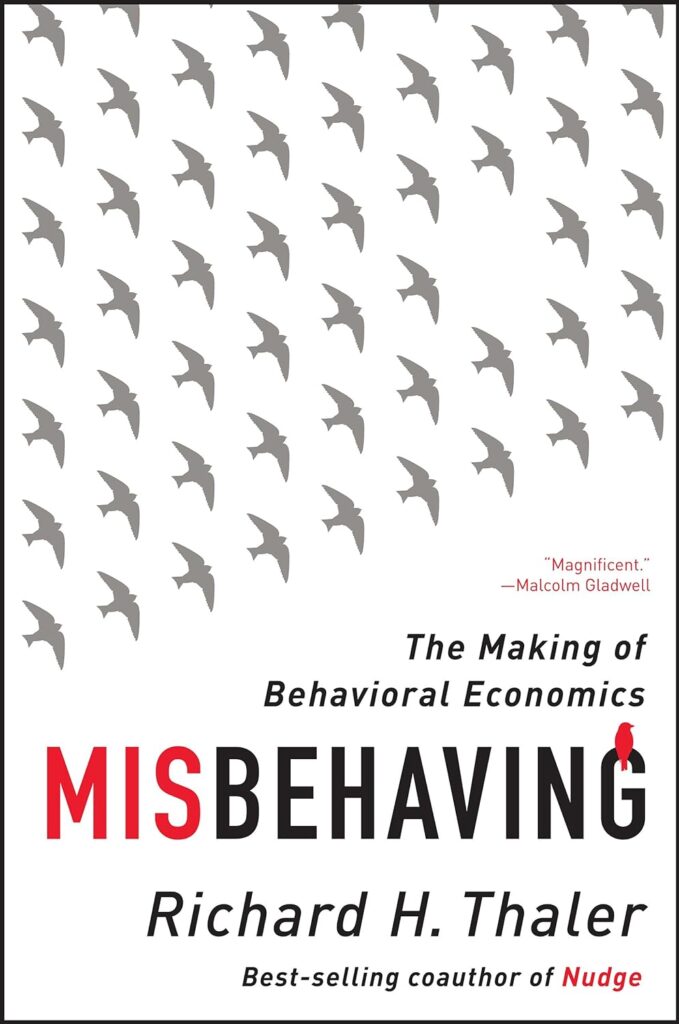
Misbehaving
The Making of Behavioral Economics
by Richard H. Thaler
Published by: W. W. Norton & Company, 2016
Genre: Nonfiction | Business & Economics
Page Count: 434 (Kindle Edition)
Audiobook Length: 13 hours and 35 minutes
Audiobook Narrator: L. J. Ganser
ISBN: 9780393352795
Publisher’s Description
The renowned behavioral economist exposes the irrational tendencies in our thinking and illuminates the way to make clear, logical decisions
Why are we more likely to forgo the opportunity to sell a £100 bottle of wine rather than actually taking money out our wallet to pay for it, when ultimately the ‘opportunity cost’ of doing so is the same? Why would the ‘endowment effect’ mean that we value a free ticket worth hundreds of pounds more than the money we would get from selling it? As the most vivacious and vociferous founding member of behavioral economics, Thaler presents his insightful findings with stories about data and experiments and shows us how to avoid making costly mistakes in our own lives.
About the Author
Richard H. Thaler is an American economist known for his work in the field of behavioral economics. Born on September 12, 1945, Thaler has made significant contributions to understanding how psychological factors influence economic decision-making. He is particularly recognized for his research on topics such as the endowment effect, mental accounting, and the concept of “nudging.”
Thaler is a professor at the University of Chicago Booth School of Business and has been a prominent figure in the development of behavioral economics, challenging traditional economic theories that assume individuals always make rational choices. In 2017, he was awarded the Nobel Prize in Economic Sciences for his pioneering work in integrating insights from psychology into economic analysis, providing a more realistic understanding of economic behavior. Thaler is also known for his popular books, including “Nudge,” co-authored with Cass Sunstein, which explores how subtle changes in the presentation of choices can influence decision-making.
